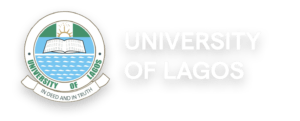On Tuesday, February 6, 2024, the University of Lagos, Nigeria (UNILAG) welcomed a delegation of researchers and faculty members from the Debre Markos University, Ethiopia, and University of Innsbruck, Austria. The visit comes on the heels of a tripartite arrangement aimed at fostering collaboration and knowledge exchange in the field of Sociology among the institutions.
The visiting researchers are currently working on the Africa-Uninet project on “Enhancing Quality of Sociology Graduate Teaching and Learning through Staff Exchange and Collaboration among Three Universities”.


The delegation led by Professor Markus Schermer was received by the Director, International Relations, Partnerships and Prospects (IRPP), Professor Ismail Ibraheem at the Vice-Chancellor’s office. He was joined by other key faculty members from the Department of Sociology including Professor Bola Amaike, Dr. Michael Kunnuji, and Dr. Idongesit Eshiet.

While introducing the team, the Acting Head of Department of Sociology, Dr. Kunnuji gave a background on the visit, describing it as part of efforts to foster collaboration and enhance knowledge sharing.
Dr. Kunnuji disclosed that “the visitors have, since their arrival, been involved in a series of discussions with the academic community in an effort to exchange ideas, and contribute to the development of an innovative curricula”.
During the meeting, all parties expressed commitment to exploring joint research projects, academic exchanges, and collaborative initiatives that would contribute to the advancement of sociological studies. The visiting researchers and faculty members shared insights from their respective institutions and highlighted areas where synergies could be leveraged for impactful research outcomes.
Discussions at the meeting also revolved around comparative studies on cultural dynamics, migration patterns, and social inequality within diverse societal contexts. The three parties recognized the value of cross-cultural research collaborations in enriching sociological scholarship and promoting a deeper understanding of global social issues.
In his remarks, Professor Ismail Ibraheem who received the august visitors on behalf of the University management team, averred that “one of the key areas of interest for UNILAG will be the co-design of curricula”. He noted that such will allow the three universities to work together to meet the needs of students, demands of the job market, and requirements of the industry.

While emphasizing that one of the key benefits of their research work would be the ability to leverage the expertise and resources of multiple institutions, IRPP boss stressed that the collaboration will lead to the creation of interdisciplinary programs that will offer students a well-rounded education to prepare them for the complexities of today’s globalized world”.
His words “…by working together, universities can combine their strengths and knowledge to develop a curriculum that is comprehensive, innovative, and reflective of the latest advancements in various fields”.







The visit concluded with a commitment to formalize collaborative agreements by the three tertiary institutions. These agreements are expected to outline specific areas of cooperation, joint research funding mechanisms, and mechanisms for academic resource sharing.
Report: Bayo Salau
Photographs: Samuel Olaifa Dosunmu

